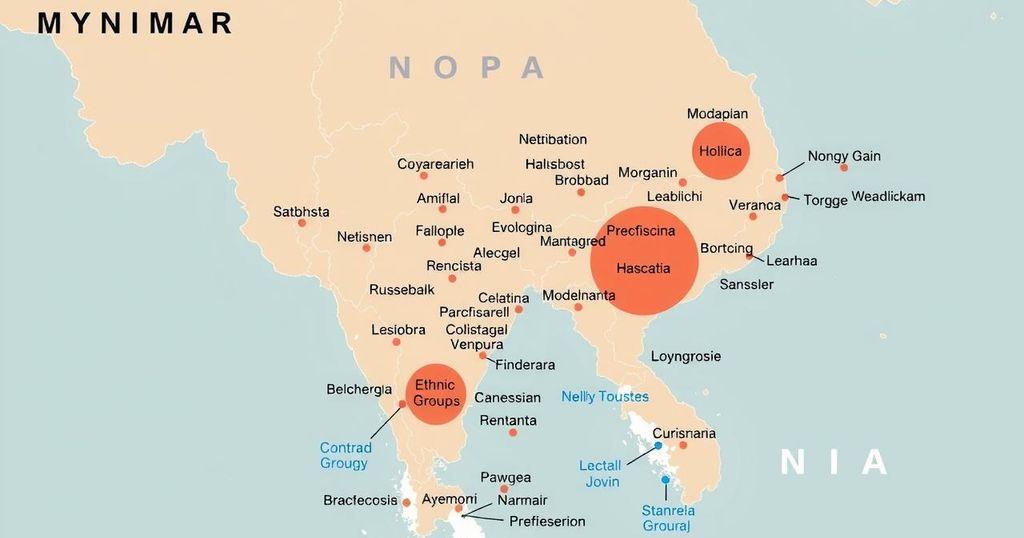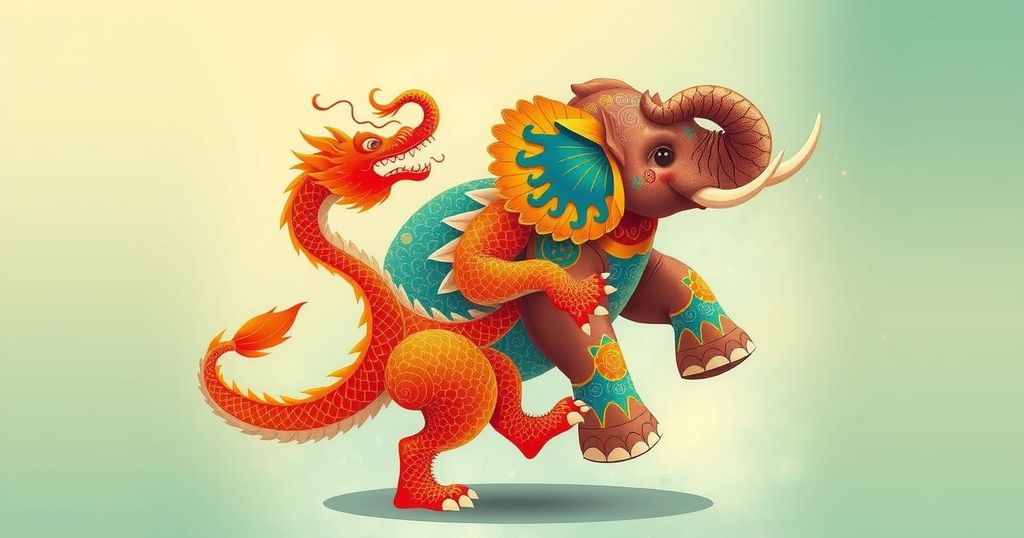Politics
ARMS TRADE, ASIA, ASS, BAMAR PEOPLE ’ S LIBERATION ARMY, CHINA, DEFENSE, EUROPE/ASIA, GEOPOLITICS, INTERNATIONAL RELATIONS, KACHIN INDEPENDENCE ARMY, MEXICO, MILITARY, MIN AUNG HLAING, MYANMAR, NORTH AMERICA, PEOPLE ’ S DEFENSE FORCE, RUSSIA, TA ' ANG NATIONAL LIBERATION ARMY, UNITED STATES, US
Omar El-Sharif
The Impact of Shifting Geopolitical Alliances on Myanmar’s Civil War
The civil war in Myanmar persists as global powers realign, notably with Russia backing the junta and the U.S. reducing support for opposition groups. Meanwhile, China aims for stability, potentially stepping up its role as a mediator. However, geopolitical shifts may not lead to democratic progress or lasting peace within the region.
Myanmarese civil war continues amidst shifting global allegiances. The United States’ continued military assistance to Ukraine contrasts sharply with Russia’s increasing support for Myanmar following its military coup in 2021, which terminated a decade-long power-sharing arrangement with the democratically elected government. The conflict has persisted for four years, claiming over 6,000 lives and displacing more than 3.3 million individuals, as the military faces opposition from various ethnic groups and armed resistance movements.
Russian support for Myanmar’s junta has proven advantageous due to both nations being subjected to international sanctions, positioning them as partners in the global landscape. During his recent trip to Russia, Min Aung Hlaing empowered Russian companies with rights to mineral extraction and infrastructure projects within Myanmar. Russian oil exports, historically significant to Myanmar, have gained new relevance as routes for transporting oil to China amidst Western sanctions on Moscow.
In contrast, U.S. support for the Spring Revolution has waned under the current administration. Washington’s symbolic backing has fallen short of formally recognizing the National Unity Government (NUG) as Myanmar’s legitimate government. This decision obstructs access to US$1 billion in frozen assets that could aid Myanmar’s resistance against military rule, further compelling the opposition to seek alternative forms of support.
The U.S. foreign policy under the Trump administration has witnessed significant cuts to foreign aid, affecting key services and development programs in Myanmar. Access to unbiased information has diminished due to the suspension of media services such as Voice of America, crippling outreach to the citizenry. Observing the historical context, shifts in U.S. policy could either bolster military governance or realign support toward the opposition.
China’s involvement in Myanmar, traditionally supportive of the NLD, has pivoted following the coup, as Beijing hesitated to engage with the junta. Nevertheless, China now seeks to mediate reconciliation while reviving stalled infrastructure initiatives. Faced with the potential spillover effects of the civil war, Beijing appears keen on stabilizing Myanmar.
The current conflict has diminished Chinese investment in Myanmar, alongside humanitarian concerns arising from lawlessness and scams affecting both citizens and foreign nationals. China prioritizes stability and may convince resistance groups to accept its mediation role amid reduced U.S. support. However, a hastily negotiated ceasefire does not guarantee a long-term solution, as geopolitical dynamics continue to influence the trajectory of Myanmar’s civil strife.
The ongoing civil war in Myanmar remains heavily affected by the shifting alliances of global powers, notably Russia, the United States, and China. Russia’s support for the junta contrasts with the diminishing aid from the U.S. to the opposition groups. China’s attempts to mediate could reflect a strategic pivot in the region, where the focus shifts towards stability amidst the disorder. However, a mere adjustment in foreign influence is unlikely to foster a sustainable democratic process in Myanmar.
Original Source: theconversation.com








Post Comment